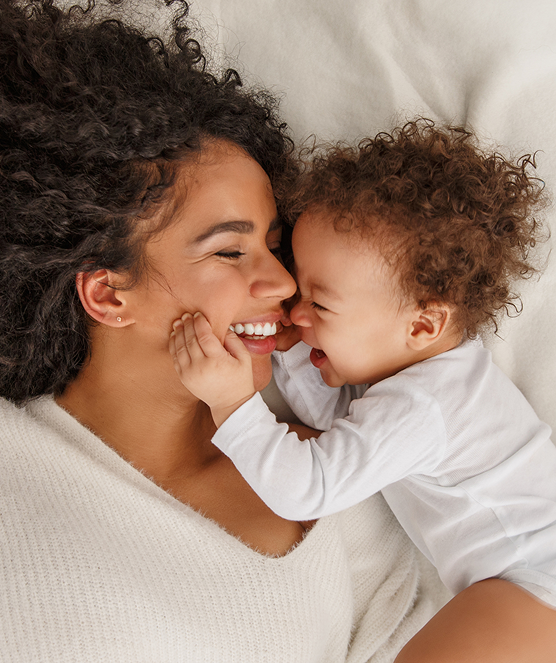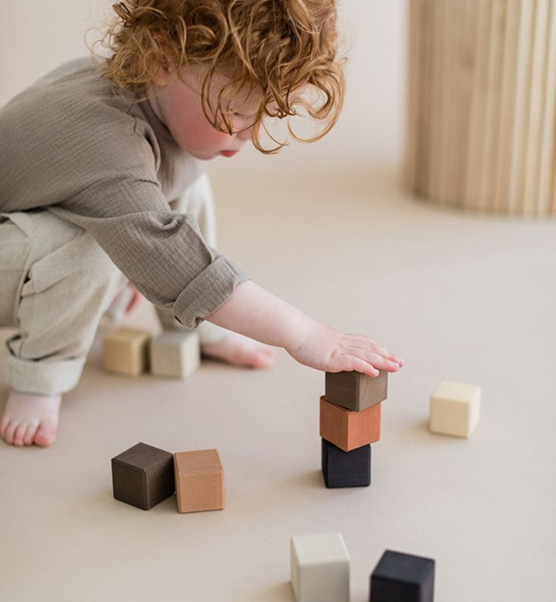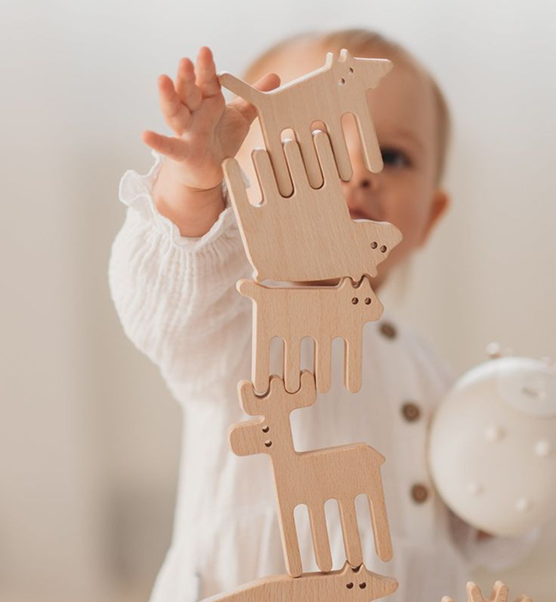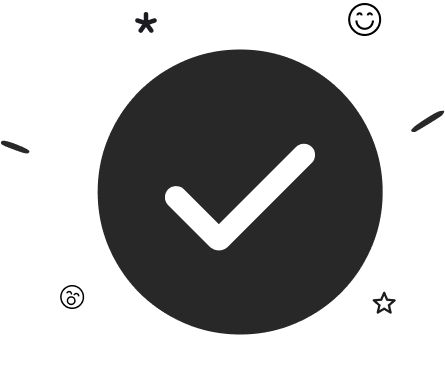Today I am thrilled to feature an interview with Majka Burhardt, a professional ice climber (seriously) and the author of a new book called More: Life on the Edge of Adventure and Motherhood, which is a really raw, gripping book about the first years of parenthood. It’s a book that I had a hard time putting down, even when it pulled me back into the uncertainties and fears of the beginning of parenting.
There is some lesson here. Like, “Parenthood: even more terrifying than ice climbing.” I will still never ice climb.
This is a good one to listen to, or you can read the transcript below.
But actually the book is almost uncomfortably relatable. Alex, who works with me, and I were talking about how we really couldn’t put it down, even at moments when we thought, “Ah, I’m feeling this a little too much.” Because it’s not really a book about climbing. It’s really about parenting, and partnering when you parent, and that conflict and all that stuff.
And so we’re going to get into that, and that’s really where I want to focus. I think it’s so relatable to so many parents. But first I want to ask you this basic book question. Can you tell us in your own words: What is this book? Why did you write it? And what do you hope people will get out of it?
When I was becoming a mom and then in my early years of being a mom — and my kids are still really little; they’re 6 and a half right now, so I’m still at the very beginning of this journey — but I felt like I had this fiery ball of unknown angst. I needed a place to put it, and so I put it in writing, and eventually I looked at it and I said, oh, what if I stitched that together? What if this was something I was willing to share with other people? Would they relate? Is this a similar experience?
Because those were the conversations I was dying to have with anybody I met on the street. I’d see some random mom and I’d be like, no flipping way, is it this hard? I had no idea. Right? Who knew that all this stuff was going to cascade and feel like this? And how do I find my way to being in a dialogue about it?
So, selfishly, that’s what it was for me. But it’s the story of me balancing becoming a mom, thinking that I could have one kid and just mesh them into my life, and instead having two at one time and having the universe say, guess who’s in charge? Trying to do it with a really dynamic career between being a professional climber and also growing a major international nonprofit and trying not to tank my marriage.
It’s this first-person account, and why do we need to change it? Because I think when we do retrospectives, everything gets a little bit blurred and it’s all very lovely, and we kind of round the edges a little bit. It’s like, well, I probably wasn’t that mad. And it probably was generally okay, and now I have wisdom because I’ve had better sleep and all these things. But when you’re in the middle of it, when you’re just in the hot mess of it, if that’s what you’re trying to speak to — and as I said, those are the conversations I wanted to have — to me it was more important to sit right there in the hot mess of it.
And at the same time, I was dealing with a ton of anger and resentment towards my husband, which I knew wasn’t entirely healthy or entirely appropriately directed, but I just couldn’t figure out what to do about it. And I think being at like the Venn diagram of hell that that was, was really, really hard for me. It was too much. And I was like, how do I do this? How do I do it while trying to be a really patient, lovely mom who can say, “Yes, I’ve got you. I’m here for all of your emotions.” And find a way to talk to my husband and say, “I feel like this. And I know it’s not entirely okay, but something about this is wrong and we need to fix it.” And holy god, how do I re-parent myself? Like, what are the tools that I have so that I can show up as a different parent to my kiddos?
It’s like the repair concept. How do I try, how do I biff, how do I go back to my kids and the people around me and say, “I’m trying, I’m learning, I’m trying to do something that I don’t have the muscle memory for”? So I’m trying to create muscle memory and emotional memory in my kiddos while I’m doing it for myself.
But I remember this from my own marriage — that year being the most conflict that we had. More so than the pandemic or the arrival of the second child or when we had to move across the country. All of these other disruptions, I felt like we were much more on a team about, and the beginning of parenting had in some ways weirdly less of a team feel. Because there was so much uncertainty.
But the thing is that when I look back on that, I can say, well, that was really hard, but I don’t remember all the details. I remember one particular incident involving the rock-and-play sleeper and napping, but other than that, there are these rounded edges. And I don’t re-live it with frequency. And of course, writing it in this way, you do re-live it with frequency. So I was first wondering, how did that go? How hard was it to have him read that?
Peter knew I was working on the book after a certain point, but it wasn’t for years, because I didn’t know I was working on a book. It was really not until like the kids were 3 and a half that I was like, oh, I think this is actually going to be a book. And then I spent the next year writing and putting it together and then sending it out. And then it was like, I guess it is a book. And for me, it was more important to show up who I am to my spouse than it was to mute that. And to take the risk.
And it’s been hard, it’s been bumpy. I am married to someone who’s very private. And that is not his dream — yay, let’s write a book about the hardest part of our lives. And let’s not even do it in retrospective, with some nice blurring and great morals. Let’s be in the shit of it and really show people what that felt like.
But to me, what about the gift that we can give other people to be like, I’m not alone? Because it feels so terrifyingly alone. I remember at one point thinking, of course that’s why all these marriages blow apart when people have little kids. Or where you lay the tracks for just so much intense resentment and hatred that you can’t pull yourself out of it.
We have to have a better way to do this. And I think to have a better way to do this, it’s that intersection of all the pieces, right? It’s the Marshall Plan for moms. It’s having different conversations about how we’re re-parenting. It’s looking at the data and saying, why are we being led astray with all of these wives’ tales versus what’s really happening?
And it’s also saying it’s this hard. When it’s hard, it’s this hard. It can’t just be fixed by saying, well, just buck up and one day you’ll get sleep, and by the time you have grandkids, you’ll probably be okay with each other. That’s bullshit! We’ll not be able to solve for this, and take care of people and love them and nurture them on this journey, unless we’re willing to say that sometimes it feels that hard. So I’ll fall on the sword. I’ll be the person being like, it can feel this hard, and I can do it in a public way.
And you can’t really apply math to anything. Because these are personal choices, right? Definitely my mom’s generation, it was not even an option. If you were going to be a crusher career mother, you could not say, “And I’m also going to try to pick up my kids sometimes at 3:00.” You just had to fully be on that other track. And I think now there’s this question of: What if I can try to have this career and I can try to be really present as a parent?
And I think then the corollary to what you were saying, Emily, is: Is your spouse also trying to do all that or are they not? And if they aren’t, which could be their prerogative and could be the way your agreement is, are you always going to feel like there’s an imbalance? And it’s being like, I’m owning this, but I want to own this because this is what makes my family work. And I wish you were owning something similarly big.
But I think it happens when we care about something or we have a set of preferences, that we almost want the partner to have the same set of preferences. And there can sometimes be freedom in saying, this is my set of preferences. And, like you, I have a much higher taste for random times with my kid — picking them up and walking to the convenience store at 3:00 in the afternoon. I organize aspects of my professional life around that in a way that my husband does not. Not because he doesn’t like the kids or because he doesn’t care about equity, but because that isn’t important to him. And I’m always struggling a little bit with — how much of that is because that’s really what I want and how much of that is an underlying inequity? And if it’s just because that’s what I want, how should I feel about that? And I don’t think there’s an easy answer.
There’s space there for doing a better job, probably for all of us, in saying, “You are responsible for this thing.” We’re going to divide the tasks in a way, not that I’m responsible for everything and I allocate them like you’re my employee, but we’re the co-CEOs.
Before we had kids, I felt like nobody knew me better than my husband. Nobody knew everything that was happening with my job, the ins and outs, and all of a sudden, we lost that because we didn’t have time to talk about any of that stuff.
And so there are these ways that you put a shot off the bow to be like, “I need to think about the socks that don’t seem to fit my children’s feet for any worth and I can’t seem to keep these things on, and I’m actually putting mental bandwidth in it.” And he’s kinda like, “Why are we even talking about that? I don’t want to talk about that.”
But you’re trying to find these points to bring each other in. And I think the reality of having young kids is that you just misfire with your partner all the time, and you can’t see the misfires and you’re too tired and you’re too caught up in whatever the hell you are going through emotionally that you’re not seeing that your partner’s going through that too, and you can’t help catch them. And I think that is one of the reasons that it’s so darn hard.
So it’s not only you find these moments and you say, “Oh man, I really like you” but also, “Yeah, I haven’t been seeing you, and you haven’t been seeing me.” That’s how we based our whole relationship before having kids — we were the people who saw and got each other. What a wild thing to then be tossed into being parents and, weirdly, sharing the most intimate experience you could ever share but not sharing it. That doesn’t make sense. But that’s actually, to me, a summary of early parenting,
So I think in this way, intellectually, I know that we are completely different. I think that I always [equate] us. Like, we’re the same, we’re just these different versions of each other. And then all of a sudden it’s like, whoa, we are not different versions of each other. He did not gain 70 pounds carrying twins and then have to have an induction and 42 hours of labor and a C-section. No, there’s just no way.
And that was hard for me. And I do think you’re right that having that mirror — that was never a mirror but is really not a mirror there — it just felt like it was more in my face than it would’ve been if he had a different passion, a different career.
And it manifests in these different ways because you also see desire, right? That’s something I’ve had to really have a reckoning with, is that our appetite for what we want to do as climbers is different now. And it’s always been a little bit different, but it’s much more different from each other now with our kids than it was before we had kids.
But for a long time, I felt I was doing the same thing in not as good a way — a more tired way, let’s say.
But yet we do it, and then all of a sudden it adds to the different tension points. Versus if you had some more zen way of understanding from the very beginning, like “They are a unique individual. We sometimes cross over in these patterns, but we will always pursue it differently.” It’d probably be healthier, but I just didn’t start from that point.
The whole point of this book, it’s a book to them. So I remember early on someone being like, “You can’t write this. Your kids are gonna read it.” I’m like, that’s the whole point! I want them to read it. Because in my family, the family that I am trying to lead with these two little humans, it’s like, let’s talk about it. Let’s talk about this thing that’s hard. Let’s go sit on the bench together through the hard so that you know that I can be there with you and we can get to the other side together. So absolutely when it’s time, this book is theirs.
Your kids will know. And my kids won’t know either. I’m just going to be like, “Oh yeah, one time you vomited after some mushrooms. But anyway, it was fine. We just didn’t eat any more mushrooms after that.” [laughter]
All right, so the book is called More. It’s absolutely amazing. I tremendously appreciate you being here. Thank you.
Community Guidelines





















Log in